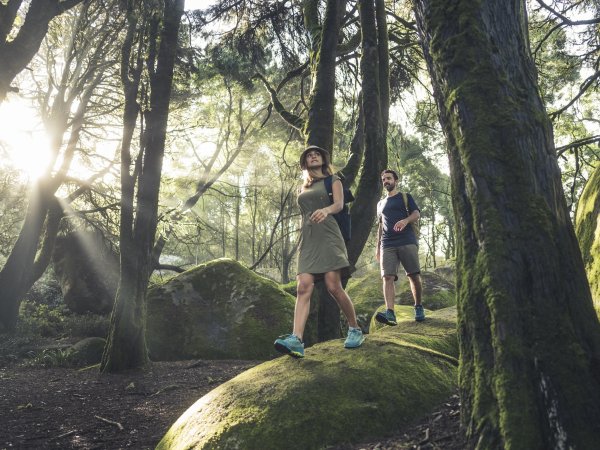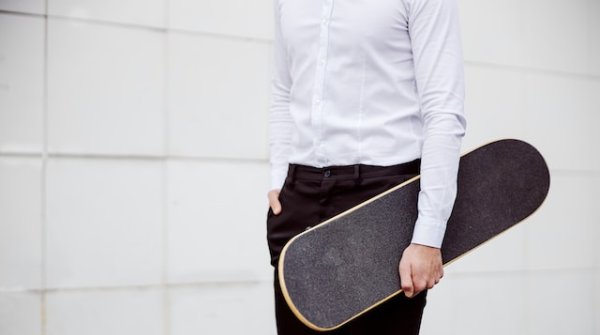Every industry needs more and, above all, real sustainability - including the world of sport. Nevertheless, the invitation from UNIDO (United Nations Industrial Development Organization) for ISPO to take part in the Greentech Festival 2024 in Berlin as a guest on two panels prompted a change of perspective. So why ISPO and why sport of all things? The following five theses are intended to make it clear why sport has an incredible amount to offer in terms of sustainability. It is also a call to make greater use of sport, to challenge and promote it - and to learn from it.
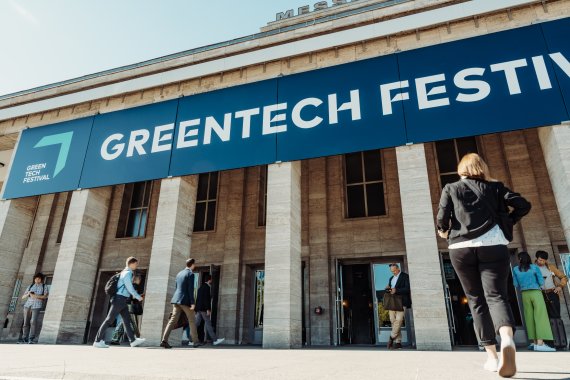
The structure of the sports market is as diverse as it is international. Hardly any other industry has so many small and medium-sized enterprises (SMEs) and at the same time operates as globally as the sports industry.
It doesn't matter whether it's sporting goods, competitions/sporting events, tourism or similar. SMEs face numerous challenges: They have to make large investments, constantly face international, regulatory complexities (e.g. many different national and international legislations) while managing and aligning numerous business partners and stakeholders. In addition, the market is very fast-moving (the sporting goods industry has two to four collections a year).
On the road to true sustainability, the world of sport must therefore take many directions at the same time, try out many solutions for the first time - and it has less financial leeway compared to companies in other sectors. Logically, mistakes are bound to happen, for which the industry is often criticized. But in many cases, it leads the way as an innovator, paving the way for others. And this pioneering achievement is one that deserves more visibility - so that others can learn from it and sustainability can be applied more widely across all industries.
Solutions, best practices and experts on the topic of sustainability can be found here: You can find out everything you need to know on the Green Stage and in the Sustainability Hub at OutDoor by ISPO 2024.
Among others in these panels:
- How to make a positive impact on Biodiversity, the role of the Oudoor industry
- Breaking Business Barriers to Net Zero Emissions
- Why the outdoor industry can be amongst the most important climate solution providers
- Inspired by Nature: Circular Material Innovations for a Sustainable Transformation
- and many more
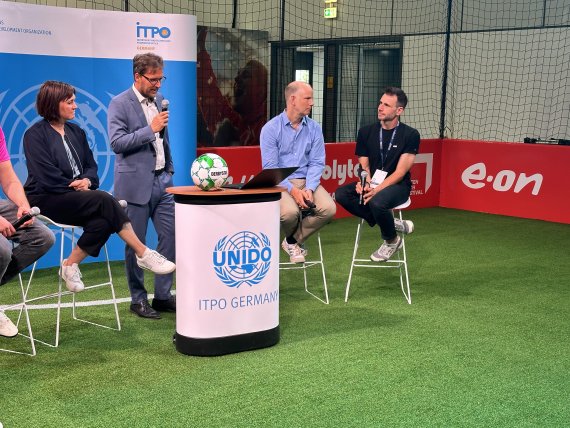
Sustainability is often equated with being climate-friendly or conserving resources. However, the definition of sustainability can be better understood in terms of the UN's Sustainable Development Goals (SDGs): 17 sustainability goals with 169 sub-goals for the realization of a global, sustainable society - this is the so-called future contract of the global community. These are to be viewed holistically and range from social justice, access to vital resources and clean energy to health, equality, peace and climate protection. And sport is playing a major role in achieving almost all of the SDGs:
- A healthy person without sport - unimaginable (Goal #3).
- A peaceful society without sport - difficult (Goal #16).
- The desire to experience and protect the planet at the same time is huge among sports and outdoor enthusiasts (Goal #13).
Sport can be used to a much greater extent, as hardly any other "medium" reaches so many people. Sport has the status of a world religion and, if used correctly, can have a positive influence on people, societies and even governments. Linking major events to sustainability goals in line with the SDGs is just one possible example. The voluntary "submission" of EURO 2024 to the Supply Chain Act is a current and positive signal.
A good outdoor jacket or functional duffel bag can quickly consist of over 100 components. These range from zippers and buttons to various shell materials. These, in turn, usually come from different countries and are refined in other countries during the manufacturing process. It is therefore possible that such a product has already seen more countries before reaching the market than some people travel to in the course of their entire lives.
In recent years, the industry has made real evolutionary leaps in this area: more local supply chains, more designs and collections with a focus on mono-materials, reparability, new manufacturing technologies, etc. Ultimately, however, it is clear that the focus needs to be on the origin of the value chain. In other words, raw materials and their processing are usually in the hands of suppliers - and they are subject to different regulations. It is often not the lax legislation in the usual manufacturing countries that is the problem, but the cultural differences - and these are often more difficult to manage than the regulations.
Brands are therefore currently putting a lot of effort into managing their supply chain and maintaining a trusting, productive relationship with suppliers. This means continuous relationship work, education and training, monitoring and certification. Admittedly: The topic has also been neglected for far too long.
But the enormously high demand for platforms such as ISPO Textrends recently proves that upstream is in focus - and this is demonstrably also attracting other industries. They benefit from this because they have to overcome similar challenges, for example furniture manufacturers, saddleries in the automotive industry, chemical companies and many more.
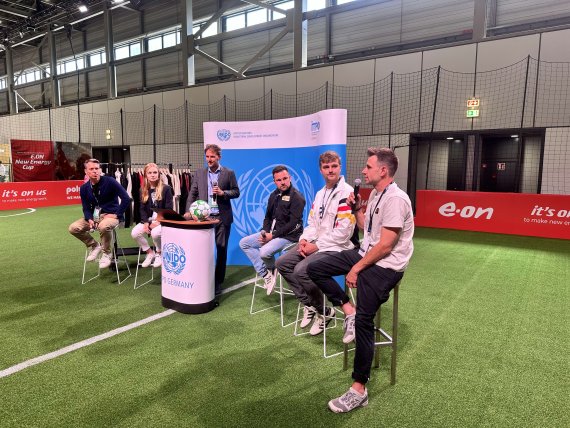
You can feel it more and more, but the generational shift in the end consumer has not actually been completed yet. A new generation is just leaving schools and universities - and this generation has high values, high expectations and is not prepared to compromise.
This "positive pressure" arrives first in sport and health. Why? Because this generation in particular understands sport and health holistically and declares it a lifestyle. In future, it will therefore be less and less possible to hide behind greenwashing and great green stories. The new generation is allergic to any attempt to present half-truths. Armed with social media power, artificial intelligence in tow and organized in digital and physical communities, they will act mercilessly in the future. This will indeed be uncomfortable for some sports brands, but if they are to remain relevant and ensure their own survival, the real sustainability change in the sports and health sector will have to be implemented first. So the sports world will be the first to get rid of greenwashing - whether it wants to or not.
The good news is that most brands want the sustainable transformation themselves - but a little extra pressure from consumers can't hurt. This is supported by legislation, such as the EU Green Claims Directive, which sets out rules for companies regarding sustainability communication.
Alex Denker Category Manager Sustainability & Snowsports @ISPO
Green Deal, Supply Chain Act, greenwashing - are you also overwhelmed by the regulations & changes? On the Green Stage of the OutDoor by ISPO 2024 you will get all the insights you need in one go. Benefit from expert talks, best practices and concrete solutions and make your company future-proof.
The softest factor is probably the most important: sport is a people business. And that attracts people who also feel an emotional connection to this world. Most people in the sports business also live professionally what drives them privately. This includes the sporting spirit of always wanting to improve and work on yourself, as well as the knowledge that we are in a conflict of goals, the tension of which will probably never be resolved.
Nevertheless, we work hard to make it as bearable as possible: We want to experience nature, so we must preserve it! Our "sports and playground", the planet Earth and its magnificent nature, is the simple reason for the sheer existence of so many brands in the sports and outdoor environment. This is why the intrinsic motivation to become better here is increasing. That's why the resilient pioneering spirit exists (see thesis #1). And that is why sport, like few other markets, is still strongly characterized by owner-managed and family-run companies that embody these values.

More and more athletes are using their reach and role models, and organizations like Protect Our Winters are also raising their voices and mobilizing others, such as in the #tryharderfis campaign or the current call for the EU elections.
Alex Denker Category Manager Sustainability & Snowsports @ISPO
Unfortunately, end consumers and the market are always slow to move in a new direction, which is often due to the long order cycles. But soon there will be significantly more genuinely sustainable products on the shelves. And that already shows the attitude of the industry from over a year ago - thanks to the pioneers!
We would like to thank UNIDO for the invitation and all panel participants for the lively discussions. Many thanks to: Dr. Olaf Deutschbein (UNIDO), Dr. Olivia Henke (Alliance for Development and Climate Foundation), Johannes Axster (Common Goal), Marcel Richert (camm solutions), Mathias Diestelmann (Brands Fashion), Simon Rasch (DFL), Gordon Knebel (1. FC Union Berlin) and Jana Reiter (plant-for-the-planet).

 Sports BusinessSponsorship between fairness and image
Sports BusinessSponsorship between fairness and image
- Awards
- Mountain sports
- Bike
- Fitness
- Health
- ISPO Munich
- Running
- Brands
- Sustainability
- Olympia
- OutDoor
- Promotion
- Sports Business
- Textrends
- Triathlon
- Water sports
- Winter sports
- eSports
- SportsTech
- OutDoor by ISPO
- Heroes
- Transformation
- Sport Fashion
- Urban Culture
- Challenges of a CEO
- Trade fairs
- Sports
- Find the Balance
- Product reviews
- Newsletter Exclusive Area
- Magazine
